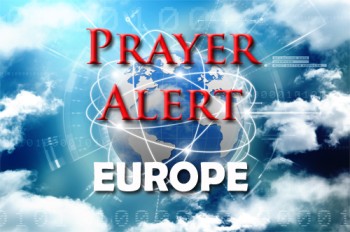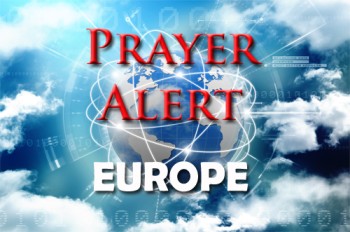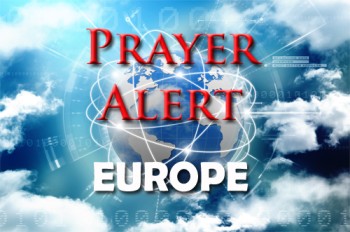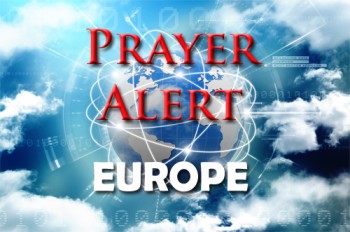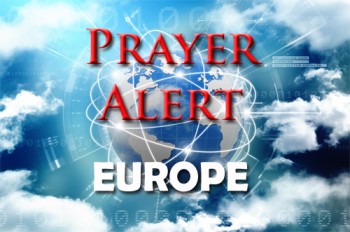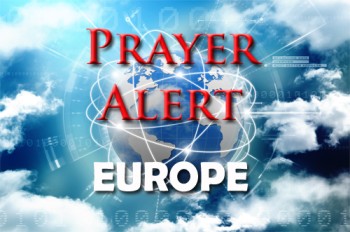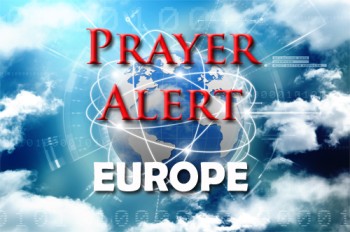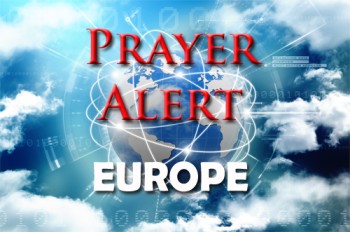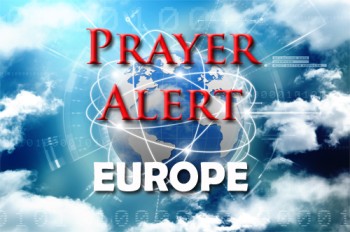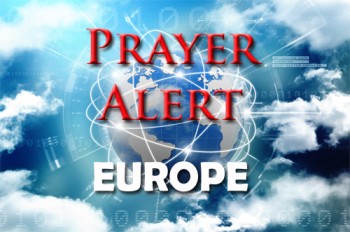Displaying items by tag: Europe
Ukraine: Zelensky’s response to Trump’s criticisms
Donald Trump’s push to end the war in Ukraine is increasingly shaped by his impatience with Volodymyr Zelenskyy and European leaders who he believes are obstructing peace and future US–Russia economic ties. Stating that ‘Russia has the upper hand’ (a claim disputed by experts), he insisted Zelensky must ‘play ball’. Meanwhile, Zelensky and European partners worked to revise the US-led peace proposal, removing provisions which they considered unacceptable and stressing the need for firm security guarantees. Many commentators, alarmed by Trump’s pressure on Kyiv and his favourable posture toward Moscow, warn that conceding to Russia would reward aggression and endanger broader European security. In reply to Trump’s claim that Zelensky is using the war as an excuse to avoid holding elections, Zelensky has offered to do so if security could be guaranteed, although it would mean altering the constitution: see
Responses to Trump’s criticisms of ‘weak, decaying’ Europe
Donald Trump has intensified his criticism of Europe, portraying the continent as weak’, ‘decaying’, and threatened by immigration. Using inflammatory language, he echoed ‘great replacement’ conspiracy themes, claiming that European countries risk becoming non-viable due to immigration. He insisted European cities such as London and Paris have fundamentally altered, and once again made a personal attack on London’s mayor Sadiq Khan. His remarks followed the recent release of a new US national security strategy warning of Europe’s supposed ‘civilisational erasure’ and signalling support for nationalist parties. European leaders reacted with dismay: Germany’s chancellor Friedrich Merz rejected the idea that Europe needs saving, calling parts of the strategy unacceptable. Pope Leo XIV also cautioned that the shift in US policy risks damaging the long-standing transatlantic alliance, and European Council president António Costa warned Trump not to interfere in Europe’s affairs (see).
Ukraine: Putin unwilling to accept peace proposal
The current round of diplomacy over the war in Ukraine suggests that Vladimir Putin remains firmly unwilling to accept any current peace proposal. After lengthy talks with Steve Witkoff and Jared Kushner, Kremlin aide Yuri Ushakov admitted that no compromise version has yet been found – not surprising given Putin’s increasingly uncompromising tone. He has denounced Ukraine’s leadership as a ‘thieving junta’, accused European leaders of obstructing peace efforts, and insisted Russia holds the battlefield initiative, even though many of his supposed gains are disputed by Ukraine and international observers. Russian state media has showcased Putin in military fatigues studying front-line maps, projecting confidence and momentum nearly four years into the invasion. Putin appears determined to convince both domestic and foreign audiences that he cannot be pressured into changing course. Yet sustaining war requires resources: oil and gas revenues are slipping, economic imbalances are widening, and the budget deficit is growing. The critical unknown is whether mounting economic strain will eventually alter the Kremlin’s wartime calculations.
France: Paris leads the way in tackling ‘carspreading’
Across the UK and Europe, cars are steadily growing longer, wider, and heavier - a trend critics have nicknamed ‘carspreading’. SUVs in particular have surged in popularity, with their market share rising from 13% in 2011 to nearly 60% by 2025. Buyers praise them for visibility, practicality, comfort, and a sense of safety, and carmakers favour them for higher profit margins. But cities like Paris and Cardiff are pushing back, arguing that larger vehicles worsen pollution, increase road wear, and heighten risks in collisions. In Paris, after parking fees for heavy vehicles were tripled, the authorities have reported a two-thirds reduction in their numbers. Cardiff plans similar measures, gradually lowering weight thresholds for higher permit costs. Supporters say cities are too constrained to accommodate ever-bigger cars, while critics argue families rely on them for space, mobility, and accessibility. With many European roads narrower than modern vehicles, the debate highlights a growing tension between personal convenience, environmental responsibility, and urban safety.
Italy: parliament passes law defining femicide
Italy has taken a major and symbolic step in addressing gender-based violence by unanimously passing a law that defines femicide - the killing of a woman because she is a woman - as a distinct crime punishable by a mandatory life sentence. Symbolically, the vote came on the International Day for the Elimination of Violence against Women, following intense national debate sparked by the murder of 22-year-old Giulia Cecchettin in 2023. Her sister’s call for society to confront deep-rooted patriarchy propelled public demand for change. Under the new law, cases motivated by control, discrimination, or retaliation for ending a relationship will be formally recorded as femicides. Supporters say this recognition exposes the true motivations behind such murders and encourages broader cultural reform. Critics argue that legislation alone cannot solve inequality, and that the definition of femicide is too vague and will prove difficult for judges to implement. Yet many believe this marks a vital shift - a country full of stereotypes about women and notions of male superiority finally naming and confronting a long-hidden crisis. See also World article 1, about the global instances of femicide.
Ukraine: differing signals about peace proposals
Hopes of a swift peace agreement to end Russia’s invasion of Ukraine have been tempered after the Kremlin cautioned against assuming a deal is close. Spokesman Dmitry Peskov said it was ‘premature’ to suggest a resolution may soon be reached, adding that outside actors - including the USA - might try to derail progress. His remarks followed more optimistic comments from Kremlin aide Yuri Ushakov, who confirmed Moscow had received a revised US-backed proposal developed with Ukrainian officials. Transcripts of leaked conversations suggest Russian negotiators believe the final document could align closely with their demands, while Steve Witkoff is expected to meet Vladimir Putin for further talks. Donald Trump has repeatedly highlighted what he calls strong momentum, claiming major points of disagreement have already been resolved. Yet elements reportedly included in draft proposals, such as Ukraine relinquishing the Donetsk region and abandoning NATO ambitions, remain deeply contentious for Kyiv. Diplomatic negotiations continue amid uncertainty and conflicting public signals.
Ukraine: two ministers dismissed over corruption allegations
Ukraine has been shaken by its most serious political crisis since the start of Russia’s full-scale invasion, after parliament voted to dismiss the energy and justice ministers in response to a major corruption investigation. The probe centres on an alleged $100 million scheme involving contracting at the state nuclear agency, implicating figures with close ties to the presidency and fuelling public outrage during a time of national sacrifice. Justice minister German Galushchenko and energy minister Svitlana Hrynchuk both resigned under pressure from Volodymyr Zelensky before lawmakers voted to remove them. While both deny wrongdoing, the scandal has energised opposition voices demanding deeper reforms, including changes within the president’s inner circle. Anti-corruption authorities have said their investigation, whose chief suspect is Zelenskiy's former business partner, includes other state agencies. With Ukraine still fighting for its survival against Russian aggression, the crisis underscores the critical need for transparency, accountability, and public trust in wartime leadership.
Poland: partnership with IJM to combat human trafficking
Poland is one of the highest-risk areas for trafficking in Europe, with 209,000 people currently trapped in modern slavery and many more vulnerable due to migration and regional conflict. Women and children make up the overwhelming majority of those exploited for sex. The country’s geography - bordering seven nations and serving as a transit hub - makes it a key route for traffickers. Although Poland has earned top marks from the USA for its commitment to combating exploitation, law enforcement resources remain stretched too thin to meet the growing need for protection. International Justice Mission (IJM), the world’s largest anti-trafficking organisation, has now launched a formal partnership in Poland, building on its success in Romania and other regions. Working with authorities, NGOs, and survivors, IJM will focus on strengthening investigations, ensuring survivor care, and driving systemic change, with the aim of protecting millions from abuse and exploitation.
Serbia: protesters form human shield against Jared Kushner’s development plans
Thousands of demonstrators in Belgrade have formed a human shield around the bomb-damaged former Yugoslav defence ministry building, vowing to stop its redevelopment into a luxury complex tied to a company owned by Jared Kushner, Donald Trump's son-in-law. The $500 million project, backed by president Aleksandar Vučić’s pro-Trump government, aims to transform the ruins - once bombed by NATO in 1999 - into a hotel and office district. Critics, however, see the move as an affront to national memory, calling the complex a sacred symbol of resistance against foreign aggression. Lawmakers recently fast-tracked legislation to permit construction despite an ongoing criminal investigation into alleged document forgery used to strip the site’s heritage status. The protests, led largely by students and youth movements, echo wider anger over corruption and government control. As chants of defiance echoed through the capital, protesters pledged unity to defend Serbia’s architectural and historical integrity against what they view as political and economic exploitation.
Hungary / USA: Trump gives one-year exemption from sanctions
Donald Trump has granted Hungary a one-year exemption from US sanctions on Russian oil and gas purchases, marking a diplomatic win for Viktor Orbán. The move followed Orbán’s visit to Washington, where Trump expressed sympathy for Hungary’s dependence on Russian energy as a landlocked nation. The decision contrasts sharply with Trump’s recent threats to penalise countries doing business with sanctioned Russian energy firms. In return, Hungary agreed to buy hundreds of millions of dollars’ worth of US natural gas. While the arrangement may ease Hungary’s energy pressures, it risks deepening tensions within the EU, where many leaders oppose Orbán’s continued cooperation with Moscow. Trump praised Orbán’s leadership and hinted at shared goals for ending the war in Ukraine, underscoring their close personal and political alliance amid growing divisions over energy, sanctions, and peace strategy in Europe.
